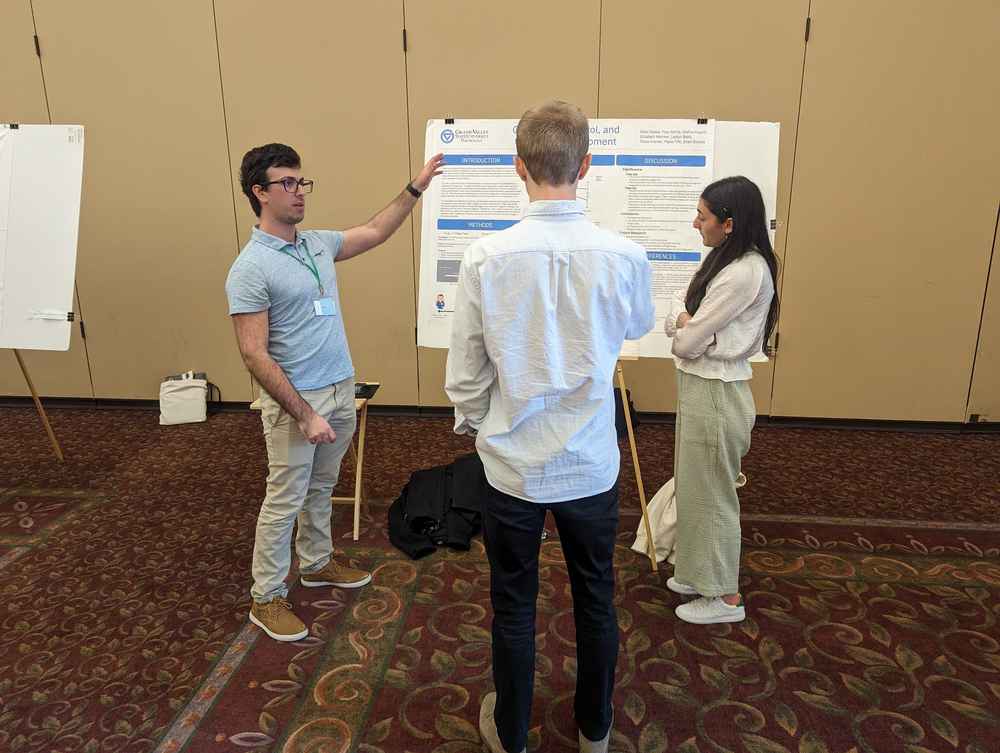Due to forecasted weather conditions, the university has implemented REMOTE STATUS on Friday, December 19, 2025. Students, faculty, staff, see email for more information.
Conference Presentations
Elias Ghazal & Mya Hanna

Elias Ghazal and Mya Hanna attended Midwest Cognitive Science Conference 2024, where they presented on: "Exploring Causal Relationships in Between Lack of Control in One's Life, Interpretation of Events and Conspiratorial Beliefs". Elias and Mya worked on this project through GVSU's Decide Lab with Mario Fific, Brian Bowdle, Josh Kopich, Elizabeth Wehner, and Lauryn Babb.
Read more about this intriguing research from their poster below:
"Exploring the individual tendency towards embracing conspiratorial beliefs presents a considerable challenge for researchers, frequently uncovering weak and inconsistent correlations with factors such as personality traits, perception of cognitive processes, decision-making capabilities, and sensory sensitivity. A major limitation of this research is the reliance on correlational, self-report measures. To address this gap, our study introduces an experimental approach, the "Broken Fridge" task, designed to place participants in a scenario where they must attempt to control the temperature of a refrigerator. This setting uniquely positions participants to experience a loss of control, thereby allowing for a more direct manipulation of their locus of control. Furthermore, our study additionally investigates how individuals infer causality of a series of events by using a series of narratives with variations in their structure and the elements of the narrative that are emphasized. This additional area of investigation provides added insight into the cognitive processes involved in conspiratorial beliefs. Our methodology aims to provide more detailed insights into the effect of an individual's locus of control, and their views on causal relations, on their propensity towards conspiratorial beliefs. This experimental procedure not only circumvents the limitations of traditional self-report measures but also offers a novel perspective on the intricate dynamics underlying the formation of conspiratorial thinking. Through this approach, our study endeavors to shed light on the detailed interplay between psychological control and the endorsement of conspiracy theories, offering a more robust understanding of the factors that contribute to conspiratorial beliefs."
Interest Area(s)
Psychology
Share this spotlight
Return to the listing of conference presentations.
